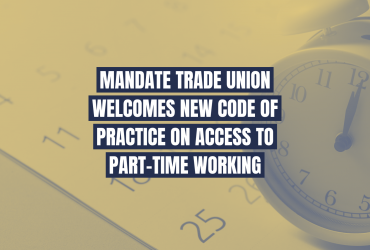
The struggle for equality continues
Friday 16 April 2021THIS YEAR International Women’s Day (IWD) was celebrated on Monday, March 8th. This global event is important for two reasons. First, it celebrates the invaluable contribution made through the years by women across all aspects of society, both here in Ireland and around the world.
Second, and equally important, it highlights the ongoing blatant discrimination and inequalities that women face, many of which are deeply embedded, and have existed and tolerated for far too long.
Recognition of these indisputable facts and a willingness to tackle them cannot merely be confined to events and statements linked to holding an International Women’s Day, rather the occasion should serve to remind us all that the struggle for gender equality is constant and needs to be highlighted and vigorously fought for on each and every occasion when the appropriate opportunity arises.
It is beyond doubt that the Irish State since its inception has not served the interests of women well.
On far too many occasions powerful male-dominated institutions deliberately contrived to ensure the role of women was undervalued, restricted and never afforded the true recognition it rightfully deserves.
In many cases the consequences of this deplorable misogynistic behaviour has taken years to surface and the accumulated unnecessary pain and suffering it caused is becoming increasingly obvious.
Issues such as the ridiculous practice of the marriage bar, the inhumane operation of mother and baby homes, and the health and life threatening consequences arising from the delivery of an inadequate cervical check service are to name but a few. Sadly, there are many more. Surely the biggest regret is that we had a choice, it didn’t have to be this way.
Aspirations
The treatment of women through the years is the polar opposite to the views of those who not only framed but gave their lives in pursuit of the aspirations relating to equality of treatment contained in 1916 proclamation.
Given the fact that the majority of Mandate members are women, it is of critical importance that we are to the forefront in fighting for tangible changes that will have a transformative and positive impact on their lives.
The following are a number of areas very much on our radar and we intend to ensure we play a proactive and influential role in the early delivery of meaningful change relevant to them.
- Gender Pay Gap: Through the years much research has proven beyond doubt the gap is real and, despite this, it continues to be tolerated. The promise by the current government to introduce legislation in the area of pay transparency needs to be delivered without further delay. This is not to suggest that this type of legislation in itself will be the panacea for all ills; however, it will help to maintain a focus on this important issue with a view to ensuring that the gap will be consigned to history as soon as possible.
- Living Wage: The aspiration for pay inequality would be greatly served through the speedy introduction of an adequate statutory living wage. Again the Government has set out its aspiration in this regard. The Tánaiste has asked the Low Pay Commission to further explore this issue so it’s our role to ensure that we influence their deliberations and seek the introduction of this laudable objective without unnecessary delay.
- Pension Commission: The Government-established Commission is currently inviting submissions regarding the adequacy of future State pension provision. In this regard your union has offered its views and highlighted once again the clear disadvantages that exist for women in the current system and the urgent need to bring about an end to same.
- Childcare: This sector is predominately staffed by women; therefore, it is vitally important that statutory measures – such as a Joint Labour Committee – be established to ensure a basic floor for terms and conditions of employment. The provision of affordable childcare is also critical if we are to remove barriers which currently prevent many women from the full opportunity of access and participation in the workplace and beyond.
- Collective Bargaining: There can be little doubt that the prevalence of pay inequality is greatly lessened in employments where the practice of proper and meaningful collective bargaining is commonplace. That is why the current government needs to swiftly introduce legislation which gives workers the right to effectively use their collective power at the negotiating table. The constitutional right to be a member of a trade union is considerably weakened unless workers are afforded the opportunity to fully vindicate this right.
Another current important issue deserving of our attention is the disproportionate negative fallout from Covid-19 for women both in relation to the significant job losses in retail in particular and the worrying evidence emerging regarding the increased incidence of domestic violence. It appears that we are about to see the introduction of extended paid parental leave, which is to be welcomed.
These are, by way of an example, just a few areas your union is presently seeking to bring about positive change. They are a practical demonstration of how we can deliver on key objectives which are clearly rooted in and around events such as International Women’s Day.
Across many facets of our society the struggle for gender equality continues. History shows us very little is conceded without a concerted effort driven by a clear unity of purpose, Mandate Trade Union is proud to be part of that collective.






